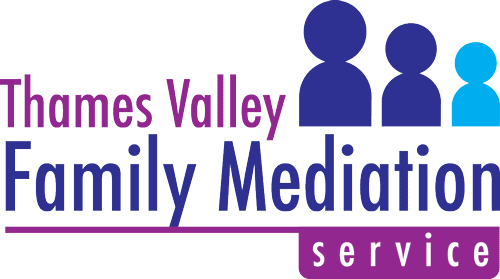TVFMS Mediation at Court Scheme - Frequently Asked Questions
TVFMS is not part of the court service and is an independent mediation charity.
We have been awarded funding by the National Lottery to provide free mediation services to parents attending Reading and Slough Family Courts for a first appointment. If you have received information from the Court, it is because the Court and CAFCASS have identified that your case could potentially be resolved using mediation.
How does it work?
The mediator will contact you via email in advance of your mediation date to organise mediation by Zoom or another video link. At the start of your mediation, each of you will have up to 10 minutes private time with the mediator to share any relevant information and to discuss how the mediation will be organised. The mediator will then hold a meeting with both of you present, or if necessary, where you each move in and out of the session without having to see or hear each other. The mediator will chair and manage the meeting.
What will happen if we agree to try mediation?
If you agree to mediation at Court, the Legal Officer will assign you a 90 minute mediation appointment at either 10am or 2pm on the day of your Court hearing and share your consent form and any Cafcass recommendations with the mediators. The Court will also assign you both a time to meet with the Court Legal Officer after your session to report whether an agreement has been reached in mediation and whether you wish to have a Consent order or need directions.
Is mediation really voluntary?
Absolutely – you do not have to accept the offer of mediation through court. However, as mediators we know that parents’ and carer’s ability to reach agreements for the benefit of their children changes with time and experience and so even if you have previously considered or tried mediation, it does not mean that you should not try again.
How safe will it be?
Mediation at Court is usually via secure video link so that all participants can see and hear each other. Mediation is not recorded, and everyone agrees that they will abide by privacy and confidentiality rules. If CAFCASS has given guidance to the Court about measures to ensure child welfare and safety that need to be considered in any arrangements, they will notify you and the mediator.
What if I need help to be able to mediate?
If you need additional facilities to enable you to participate in mediation e.g interpreters, Talk Type etc. Please let us know on your client reply form.
Who will know what we talk about?
Mediation is confidential and only the parties to the court case are invited to attend. The discussions that you have in mediation will not be shared with the Court. There are limited exceptions and you can read more about these in the Agreement to Mediate which you will be sent when you are invited to consider mediation.
Will I get to have my say?
In mediation you are each entitled to be heard and to state your opinions about what arrangements would work best for your children. You will each be expected to respectfully listen to what the other has to say.
Will my solicitor be able to join in?
Lawyers do not participate in mediation meetings - you may take any legal advice you need before or after a mediation meeting, but as these are practical discussions, lawyers do not meet with the mediator.
Will we be going over past history?
Mediation focuses on practical solutions for the future – the mediator will want to know what is important to you and does not need a detailed history of the past hurts and wrongs of the relationship or any evidence you have prepared for your Court case. The mediator is there to help you both discuss what arrangements could work for the children in future, not who is to blame for the past.
Will the mediator give us advice on what to do?
The mediator is impartial and does not give advice or make decisions for you. The mediator is there to help you both think and make decisions about what will work best for your children so that you avoid the Court imposing solutions on you that neither of you may want, as well as the delay and expense of further hearings.
Will there be a report to court?
Your mediator will make a note of any agreed proposals for the children in a Without Prejudice Mediation Outcome Summary or Parenting Plan and this will be emailed to you at the end of the session so you can reflect and take legal advice if you want to before you are due to report back to the Court. The mediator will ask if you would both like a copy sent to the Court. None of your discussions will be reported back to Court.
Will it be legally binding?
If you choose to participate in mediation you will be offered the option to request that the Court use the Outcome Summary or Parenting Plan as the basis for a binding Consent Order. Although the Court has the final say, it generally supports the parents’ decisions as long as they are in the best interests of the children.
What will happen if we can’t agree?
You have nothing to lose by trying mediation - If you are not able to resolve everything in mediation, your Court case will continue, and the mediator will inform the Court that some or all issues remain unresolved. The Court will decide when the next hearing will be, what steps each of you should take to prepare and what arrangements will be made for your children in the interim (known as directions).
